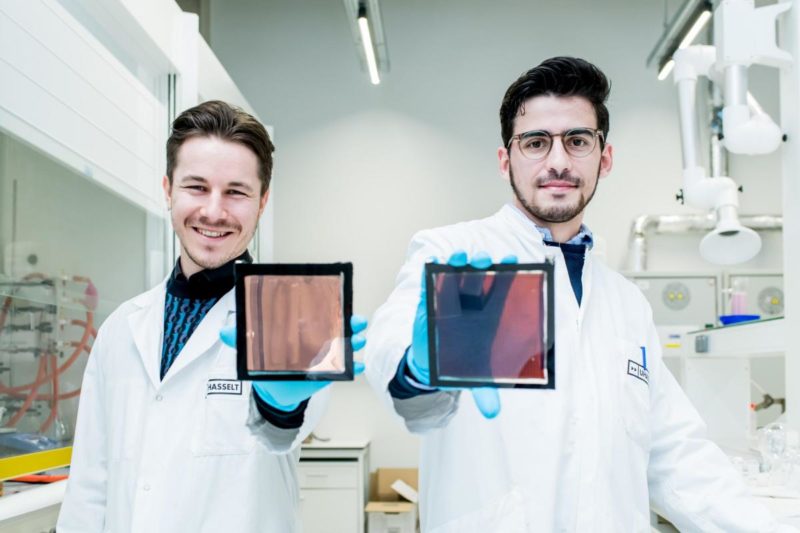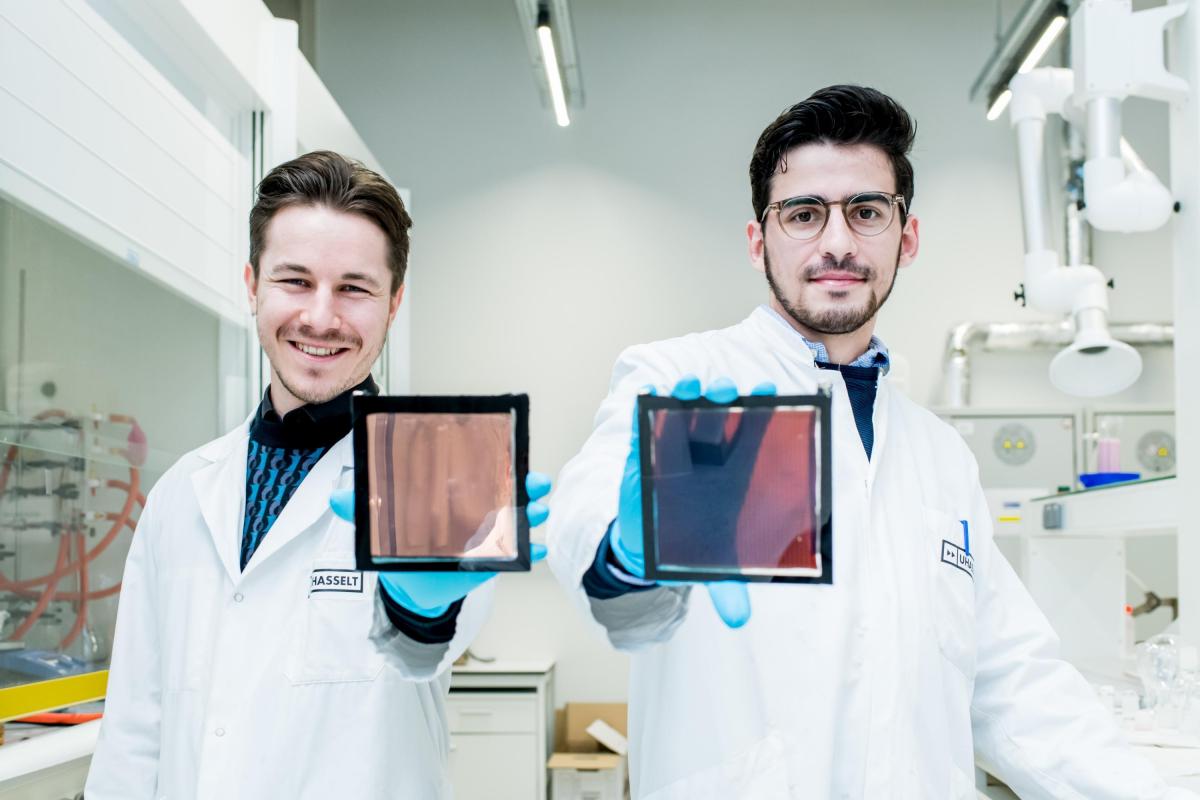Within the EnergyVille collaboration, researchers from imo-imomec (imec/UHasselt) have succeeded in integrating organic building blocks into perovskite solar cells, which significantly improves both the thermal and moisture stability of the material. Perovskite is a very promising material to achieve thin, cheap and very efficient solar cells, but it is also very unstable. “With this research, we are taking a promising step towards broadly using perovskite in many applications,” says Prof. Dirk Vanderzande, head of the Hybrid Materials Design research group.
In 2009 the material perovskite was for the first time used as a solar cell. It then achieved an energy yield of barely 3.9 percent. A few years later, it was almost 26 percent. The material thus achieved the same efficiency as the silicon solar cells that had become a standard on our roofs. And that while perovskite solar cells are hundreds of times thinner than silicon solar cells and therefore much cheaper and more sustainable. “Perovskites are a very promising material for replacing silicon as a solar cell in the future. There is only one major problem: perovskite solar cells are extremely unstable. If you start with an efficiency of 26 percent, that efficiency can drop to zero not much later. Comparable to an airplane that takes off and gradually crashes when it has reached its height,” says Prof. Dirk Vanderzande.

More than 5 months stability
Perovskites are salts, so on contact with moisture they absorb water and on average they disintegrate after 1 to 3 days if the perovskite is not encapsulated in a protective layer. For many years, the Hybrid Materials Design research group of imo-imomec, the integrated research institute of Hasselt University and imec, has been working within the EnergyVille collaboration on ways to make perovskites more stable so that they can be effectively and widely used as solar cells or in other applications such as LEDs, photo detectors or transistors.
They develop organic building blocks that can be built into the structure. “This allows us to create a so-called 2D perovskite that can withstand both moisture and a temperature of up to 230 degrees. By adding our organic building blocks to the perovskite, we make the material more stable from the inside. The best results in our lab show that even under 77 percent humidity, our material has been stable for 5 months (without additional protection), and that continues to increase,” says doctoral researcher Paul-Henry Denis.
Future
A lot of research is still needed before perovskites can be widely used in all kinds of applications. “Our strategy of adding organic building blocks is extremely versatile,” says postdoctoral researcher Wouter Van Gompel. The properties of the organic building blocks we use can be optimized even further by adapting their molecular structure based on what we have learned so far. We expect that there will still be gains to be made in this way in terms of stability and efficiency.”
“And a lot more is still possible,” says doctoral researcher Martijn Mertens. “Our organic building blocks improve the internal stability of the perovskite material. Now you can think of external ways to additionally improve the stability of perovskite solar cells. For example, by working with coatings and protective layers on the outside of the material, so that you can eliminate even more and very specific external stress factors. The future belongs to perovskite, we are convinced of that as a research group.”
This research received financial support from FWO and BOF.
Source: Promising steps taken in perovskite solar cells: organic building blocks provide much more stability. (2022, 2 maart). EnergyVille., van https://www.energyville.be/en/news-events/promising-steps-taken-perovskite-solar-cells-organic-building-blocks-provide-much-more



